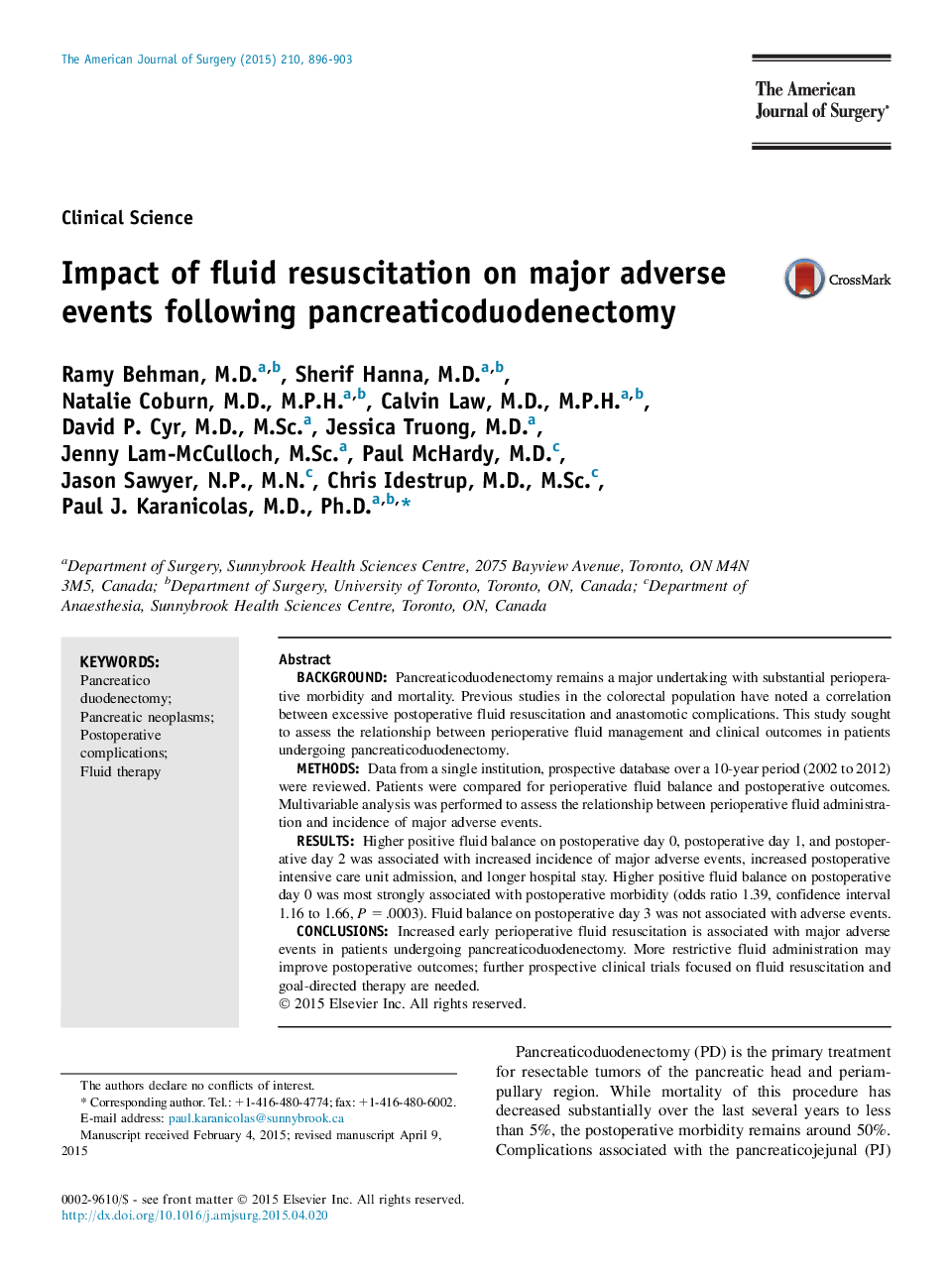| Article ID | Journal | Published Year | Pages | File Type |
|---|---|---|---|---|
| 4278261 | The American Journal of Surgery | 2015 | 8 Pages |
•A cohort of patients undergoing pancreaticoduodenectomy was grouped by postoperative fluid resuscitation and compared for major adverse events.•More positive fluid balance on postoperative days 0, 1, and 2 was significantly associated with incidence of major adverse events, ICU admission, and length of stay.•The association between fluid balance and adverse events diminished over the postoperative period and was not present by postoperative day 3.•Restrictive fluid resuscitation following pancreaticoduodenectomy may improve postoperative outcomes.
BackgroundPancreaticoduodenectomy remains a major undertaking with substantial perioperative morbidity and mortality. Previous studies in the colorectal population have noted a correlation between excessive postoperative fluid resuscitation and anastomotic complications. This study sought to assess the relationship between perioperative fluid management and clinical outcomes in patients undergoing pancreaticoduodenectomy.MethodsData from a single institution, prospective database over a 10-year period (2002 to 2012) were reviewed. Patients were compared for perioperative fluid balance and postoperative outcomes. Multivariable analysis was performed to assess the relationship between perioperative fluid administration and incidence of major adverse events.ResultsHigher positive fluid balance on postoperative day 0, postoperative day 1, and postoperative day 2 was associated with increased incidence of major adverse events, increased postoperative intensive care unit admission, and longer hospital stay. Higher positive fluid balance on postoperative day 0 was most strongly associated with postoperative morbidity (odds ratio 1.39, confidence interval 1.16 to 1.66, P = .0003). Fluid balance on postoperative day 3 was not associated with adverse events.ConclusionsIncreased early perioperative fluid resuscitation is associated with major adverse events in patients undergoing pancreaticoduodenectomy. More restrictive fluid administration may improve postoperative outcomes; further prospective clinical trials focused on fluid resuscitation and goal-directed therapy are needed.
